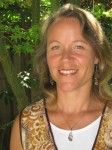 Ignatius of Loyola affirmed a long tradition when he came up with his ‘foundation’ for the spiritual life: God created the human person to love and serve the Lord, and all the things we use should further the end for which we are created. The gift of Counsel, the last of the seven Gifts of the Holy Spirit, empowers us to know which decisions and actions lead us closer to God and which lead us away.
Ignatius of Loyola affirmed a long tradition when he came up with his ‘foundation’ for the spiritual life: God created the human person to love and serve the Lord, and all the things we use should further the end for which we are created. The gift of Counsel, the last of the seven Gifts of the Holy Spirit, empowers us to know which decisions and actions lead us closer to God and which lead us away.
Everyone has the need for advice. Very young children look to their parents to find out whether or not something they wish to do is safe or wise. This confidence is short-lived, however. Children begin testing the boundaries almost as soon as they can walk. The ability to push back, to exercise free will over and against the will of authority, is part of a learning process. It enables a child to begin distinguishing "me" from "not me." This testing is rather a good thing, despite the problems that inevitably come with it. Long before my youngest son was physically able to buckle his car seat, he would insist, "Me do! Meeee do!!!" He grew very angry when Mommy did it for him. He was distinguishing himself by asserting his will: cute, but a pain.
Our children’s need to assert themselves exemplifies two aspects of the spiritual life: free will and counsel. On one hand, adults need to make their own decisions and to stand by them. This is the basis for any relationship, no less our relationship with God. Commitment to God is an engagement of the will in gratitude and love, and love is, by definition, free and un-coerced. Yet, like the child who wants to buckle up his car seat before he is able, there are times when we need help. We are not always able to make good decisions without the counsel of the Holy Spirit. God lovingly gives it to us, tailored to each of us as individuals in our concrete situation. Furthermore, the counsel of the Holy Spirit always serves the "end" for which God created us, while at the same time honoring human freedom.
The gift of counsel is where spirituality and daily life meet and kiss. When we customarily seek God and ask God to be active in our daily lives, life becomes organized or ordered in such a way that we grow in wisdom and years, in grace before God and our peers as Jesus did (Luke 2:52). Our intention is pure and our hearts can rest in God.
The gift of counsel is a powerful force for happiness. If we continually seek God, and God is the "end" for which we long, we will find life fulfilling spiritually. This is the very definition of happiness. Why, then, do we often not feel joyous when we are doing God’s will? In a nutshell, this is the work of the spiritual life- to grow in freedom that enables us to enjoy God more than our own, short-sighted view of things. Freedom and counsel are entwined in a dance of rising joy. Freedom must grow progressively more, in a cessation of struggle, as the Buddhist would say. Or as the Master, Jesus, put it, freedom is being pure of heart so that we can see God at all times.
Copyright 2010 Julie Paavola
About the Author

Guest
We welcome guest contributors who graciously volunteer their writing for our readers. Please support our guest writers by visiting their sites, purchasing their work, and leaving comments to thank them for sharing their gifts here on CatholicMom.com. To inquire about serving as a guest contributor, contact editor@CatholicMom.com.


.png?width=1806&height=731&name=CatholicMom_hcfm_logo1_pos_871c_2728c%20(002).png)
Comments